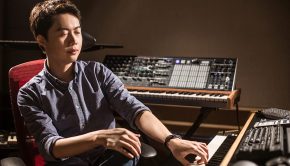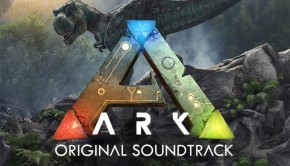Gareth Coker Interview: Ori and the Blind Forest
A relative newcomer to the video game music industry, Gareth Coker has composed music for the recent films Dark Power and The Labyrinth, as well as indie games Primal Carnage and inMomentum. More recently, Moon Studios released Coker’s original soundtrack for indie game Ori and the Blind Forest, which has been met with huge success based on top charts from Amazon and iTunes, both nationally and internationally.
In our review of the soundtrack to Ori and the Blind Forest, we look at Coker’s use of instrumentation and thematic material in his score. Here, Coker describes his process in creating the music of Ori and the Blind Forest, which has been several years in the making. Working with Moon Studios to create an animated and memorable world within the beautifully rendered game, Coker used his knowledge of world music and various musical inspirations to compose a soundtrack that would both reflect and enhance the journey Ori makes as the player progresses through the game.
[Update: Coker is now offering the Main Menu Theme as a free download on his SoundCloud account here.]
Interview Credits
Interview Subject: Gareth Coker
Interviewer: Emily McMillan
Editors: Emily McMillan, Patrick Kulikowski, Chris Greening
Photographs: Heather Lemmon / Lemmon Tree Photography
Interview Content
Emily: Thank you so much for sitting down with us – we really appreciated your approaching us with your soundtrack.
Gareth Coker: My pleasure — it’s cool to be a part of Game Music Online.
Emily: On your Reddit AMA, I think you said it took you four years to write this?
Gareth Coker: So I’ve been a part of Moon Studios since before the game was being published by Microsoft, so I came on board, I did the prototype of the game — for free — and they pitched it to Microsoft and then we got funding for the game and we made it. I have been working on it for four years, but I wouldn’t say it was a full time job for four years. I decided to become full time about this time last year.
Moon gave me access to everything they had in development at all times, so you know, I could go in and play the really early builds and get a feel for the game. I think that helped such a great amount, especially when it came to the end of the game — I knew that the exact plot of the game, and I knew how different players might approach. So I haven’t been writing the music for four years, but I have been a part of the project for four years and gradually the amount of music getting written into the project obviously increased towards the end.
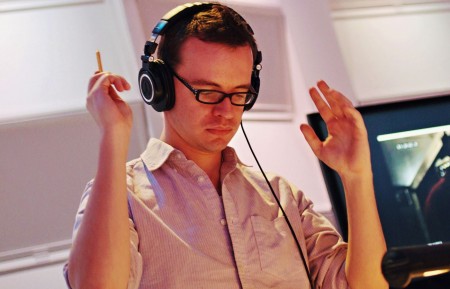
Emily: So you were a part of the game for the full development of the game?
Gareth Coker: Yes, that is correct.
Emily: One other thing you mentioned on the Reddit thread was that you were trying to give the music of the game its own culture — not necessarily an Eastern or Western culture, but a culture specific to that game — to Ori. Did watching the game develop and grow help you with that?
Gareth Coker: Well, this is difficult. This is a tricky one to explain! Yeah, I think that when that really started to happen — the overall sound and textures and feel of the music — it really stemmed from the artwork. When you have the gameplay, you really have a feel for how it plays, you have a feel for how the music needs to be written and how much momentum you want to give the music. But for the actual textures and instrumentation, it comes from the visuals. And you’ve probably seen the visuals. Well, I know you’ve been playing (laughs). Save you gotten to the end, by the way?
Emily: No, I’m about halfway through right now — I’ve been struggling with it!
Gareth Coker: Okay, so the visuals started to inform what I wanted to do with the music. But it wasn’t like, oh, this looks like a forest, but more specific. For reference, have you gotten to the Ginso tree?
Emily: Yes, I’ve finished climbing it.
Gareth Coker: So for the tree, I wanted to use a lot of wooden percussion sounds, including the actual sound of just a log being beaten, and that’s actually one of the first things you hear. So it’s not like it comes from a certain geographical location, but it totally matches the visuals of the area. It’s like this is the Ginso tree band, and later on you’ll enter an area called the Forlorn Ruins, which is an area with a bit more technology – and that’s the Forlorn Ruins band. Again, I don’t want to spoil too much! But it has a lot of metallic-y sounds, lots of percussion and bell sounds. The final area of the game takes place inside of a volcano, so, low brass, lower instruments are more dominant there. It’s always informed by the visuals, and the real challenge is to take all of those visuals and somehow make them feel like they’re a part of the same world. To do that, we have a theme recurring – you’ve probably noticed that in the soundtrack – and there are some common threads in the instrumentation. It’s mainly the orchestra that binds everything together, and the stuff that defines each area is, you know, tuned percussion, or the wooden sounds – but we use the orchestra in almost every part of the game. Not the full orchestra – but parts of it, and that keeps everything more universal.
Emily: That’s actually one thing – the first thing – I noticed when listening to the soundtrack, the variety of instrumentation you had in there. You had full orchestra, solo instruments, solo vocals, choir, electronics, piano – this huge range of instrumentation that you don’t normally see in soundtracks which often tend to stick with one group of instruments.
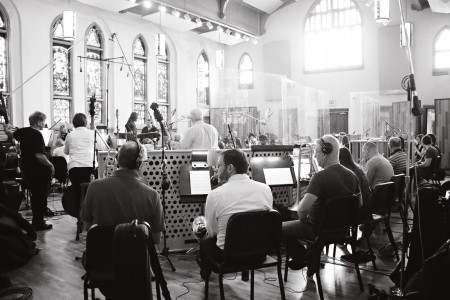
Gareth Coker: Yeah, in the beginning Moon suggested a handful of soundtracks to refer to, but I try not to listen to too many soundtracks because they can inform too much. I’d rather listen to stuff from around the world and be like, that’s a cool instrument, now how can we apply it to a soundtrack? And I think the variety of visuals really helped me. I did know that I did not want to have a typical orchestral fantasy sound with this score. I don’t know why when we came to that decision, because Moon said, “just keep doing stuff that isn’t exactly normal.”
We could have done a typical orchestral fantasy score and it could have been great, it would have been fine. But adding all of the extra instruments gives each area a unique flavor, and hopefully you’re finding all of that out in your play through already. I think that helps make the experience a little bit more memorable, because if you have just the orchestra playing for the whole game, you might start to tune out the music. That’s my view of it, that’s what I was thinking while writing the game — of course I can’t speak for everybody playing the game — but I wanted to avoid just using the orchestra for the whole the entire score. I don’t know if that answers your question, though! [laughs]
Emily: There are definitely several parts — there was one part in particular that sounded like one of those night scenes from James Horner’s little moments in Avatar.
Gareth Coker: Right, I know the moment you’re talking about, I think it’s got that really long word in the title.
Emily: Yeah, “Bioluminescence of the Night,” I think.
Gareth Coker: “Bioluminescence of the Night,” right. [laughs] That scene came up in a lot of talks with Moon. I mean, that experience when the main character is walking — the main character is Jake, right?
Emily: Yeah, yeah.
Gareth Coker: The whole scene where he’s walking through the forest for the first time and all of the plants are lighting up, that is a very magical moment. Like, we’ve watched that maybe fifty times and we’re thinking, how are they doing this? But it’s the artists, they’re the ones doing this. We have this references folder on our Dropbox, and it’s got all kinds of things in it — a list of films, a list of games, photographs, and it can be very helpful in giving us a little inspiration.
Emily: Well, I mean, it worked! It’s very similar to Ori exploring each place in the Forest for the first time — I mean it’s so beautifully painted that you’re taking in everything at the same time you’re trying to get past all the obstacles.
Gareth Coker: Right, and that’s the thing, I would say – the score is written from the point of view of Ori, and that’s one thing that’s really important to me, to take a point of view and say, this music is designed to reflect what Ori is feeling at any given point of the game. He does die a lot, as you probably know [laughs] –
Emily: [laughs] Oh yes!
Gareth Coker: Well, that’s why you have the Soul Link to save your game when you want! But the exploration is all new to Ori — he’s never been outside of his home until the moment his mother dies. When you enter an area for the first time in the game, it should feel new and magical.
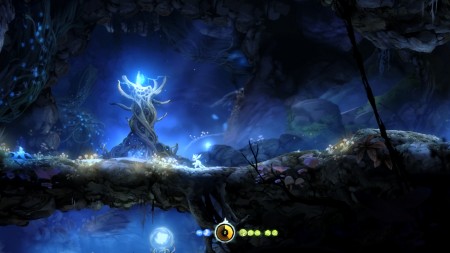
Emily: Yeah, it’s a lot more serene than I’m feeling at certain points of the game. [laughs] At what point did you come up with that main theme that sort of permeates the whole score pretty much after we first come across the Spirit Tree?
Gareth Coker: [laughs] Oh, yes, this is quite a fun story. So Thomas, the director, said we need a melody. I’m like, oh, great, that’s awesome that you’re a fan of melodies. But now I have to come up with one. We had this feature in the game that got cut — I can’t tell you what it was, but I can say it was a flashback mode kind of thing. Anyway, it got cut eventually, and Thomas was like, can you write a theme for this mode? And I wrote it — well, I wrote like five sketches for it. And then it got cut, so I thought that was a waste of time.
Emily: [laughs]
Gareth Coker: And then one of the other team members was poking around the Dropbox and says, “hey, this is a really good theme!” And I’m like “really?” And I looked at it, and I say “okay, let’s really develop this, and do it properly — instead of just a piano sketch — and a really quick virtual mockup. So, let’s do it properly,” and then I say, “oh — maybe we have something here.” And then I presented a nicely done, fully orchestrated thing to the team, and they go, “oh my goodness, this is the theme!” So the theme first came into existence in October 2013, but I’d been working on the game since the end of 2011 [laughs]. It was one of those happy accidents, and I didn’t realize it at the time — I needed someone else to tell me. You write a lot of stuff when you do a project — there are probably a lot of other things in that Dropbox that have been discarded as well that could end up in things like Ori 2.
Emily: Well, I think it is successful and you do so many variations with it throughout the store.
Gareth Coker: I think it was David, our programmer — of all people, the programmer! (who is awesome, by the way) — who initially noticed this track, and then I decided to develop it. Then I said “okay, this works!” I think we can make it work throughout the game. For me, as a composer, I don’t think we are always the best judges of our own work, and it takes someone else to say something like, hey, can you develop this? And I’ll do anything Moon asks me to, because it usually ends up leading to good stuff.
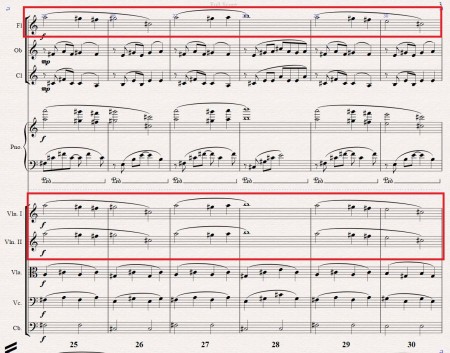
Emily: We were talking about the Ginso tree at one point and you had this sort of ascending note pattern going up, but you still sort of had the theme. So you were able to develop it for each section of the game, so that it fits whatever’s going on.
Gareth Coker: Yep. The theme ended up being in a lot of areas in the game, just to tie it all together. But it’s a theme that I think lends itself to being arranged in different ways, because the rhythm of the theme is not that complex, and it has a very defined shape, which makes it more recognizable. Because the rhythm is not that complex, you can do a lot more with the rhythm in the variations.
Emily: So now it’s been met with a whole lot of success — you were talking about it being on charts on iTunes, I think.
Gareth Coker: In America, it’s been in the top twenty in iTunes since its release day. I thought it would drop off pretty quickly — I thought there would be the initial burst, and it’s held over the weekend now. I don’t know how soundtracks fare at all, because this is the first major one I’ve done, but it seems unusual that for a $20 indie game. Ori is punching above his very small weight! [laughs] It’s just nice to see so many people responding to it.
Emily: What do you think attracted so many people to the score?
Gareth Coker: I think the reason for that is most people play the beginning — you’ve played the beginning so you know it’s moving, or at least I hope it is. Most people responded very well to that — there is no dialogue — well there are a few lines of dialogue, but mostly it’s the music that’s the experience, and obviously there’s the audio sound as well, but that’s what’s getting people attached to the music.
But I think the other thing is — and I’ve noticed this by jumping into Twitch and watching other people play — people are playing the game to the end, as if they want to keep playing. When you get to the end — again trying to avoid spoilers — there is an emotional payoff, and people, I think when they experience something that affects them, they want to take a piece of that with them, and I think that’s why the soundtrack is doing way, way better than I expected. I think I knew I’d done something that worked, I was very happy with what I delivered, and so was Moon, but I think you can’t ever plan for how well it’s received, but you just have to wait and see.
At the launch party the other night, the review embargo was 8:00, and the start of the launch party was 8:00, and the moment the launch party started, everyone’s on their phones, we’re being incredibly antisocial [laughs], but then the relief comes in, and we’re all like, “thank goodness people, everyone’s responding really well to it, we can relax.” It was a strange time to have a launch party, but it’s just been nice reading all the comments this week, that have said people are enjoying the soundtrack. It’s nice that people are enjoying it independently, but I’m just like, “please just enjoy it with the game, because I think it’s much more powerful with the visuals, which is what a soundtrack is supposed to do.” [laughs]
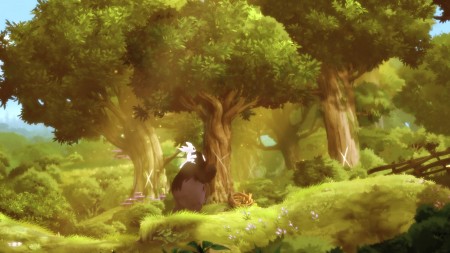
Emily: Well, I tend to go backwards with that, so I almost always get the soundtrack before playing the game, and I’ll often decide if I want to play the game based on the soundtrack more often than not, so for me it’s been really exciting getting to see what all the music goes to in the game, which is kind of a reverse experience, but still really fantastic. It’s certainly been a real delight to listen to, and it’s such a big variety of music in one score – such a great listen.
Gareth Coker: It was an incredible amount of work, but when it came to recording, apart from the ten minutes where everything is going through your head, like “what if this is terrible?” and everything like that — as soon as the first note happened, I thought, “this is going to be good.” And I had to cut stuff from the soundtrack— if I had to put every cue from the game on the soundtrack, it’d be a 60-track-long behemoth, and it wouldn’t be as solid a listening experience. Although people have now been giving me a hard time for not including certain tracks, which is kind of inevitable.
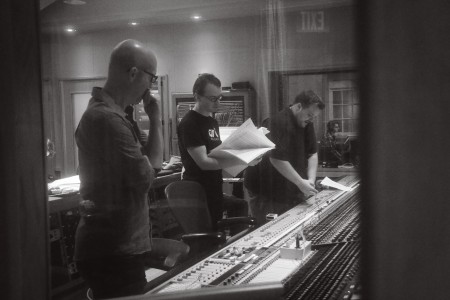
Emily: Are we going to get an extended soundtrack any time soon?
Gareth Coker: There may well be; probably the most egregious error I made was not including the main menu music.
But yeah, the soloists, the musicians, were unbelievable, and many of the tracks were take two or take three. And the other guy who I really want to thank is the mixing engineer, because I could not have done all that mixing by myself [laughs]. When we got back from Nashville, and I was looking at the Pro Tools session file, I thought “yeah, I don’t really want to be balancing 42 microphones, and with all the electronics, and all the stuff that I’d done beforehand. I had no interest in doing that whatsoever for some of the big tracks.
Steve Kempster, who mixed the score, is a big deal. He’s done some work with Austin Wintory, for example, but he’s also worked for Hans Zimmer in the past and Alan Silvestri too. He mixed the whole score in five days, which is ludicrously quick for how much music there was. For the end result, there’s a really nice warm sound to the soundtrack, which fits the forest of Nibel. Nibble? Neeble? I haven’t figured out how to pronounce that one.
Emily: [laughs] Yeah, I’ve been saying Nybel.
Gareth Coker: [laughs] Well, it fits the world really well and Steve was a really big part of that.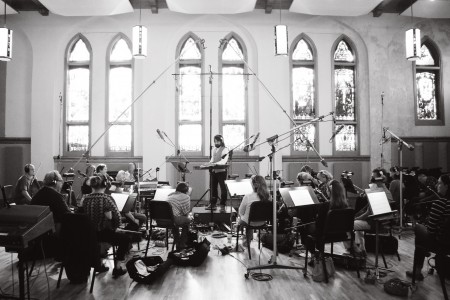
Emily: The soloists did really good work as well, too — I loved hearing their performances on the album.
Gareth Coker: Yeah, I remember finding Aeralie on YouTube and then also finding out that she lived ten minutes away. I was like, “that’s handy!” She has something special in her voice, and I’ve looked at her voice, and she has so many harmonics going on, and there’s a richness to it. I don’t know why it connects with people. I just watch people respond to her voice, and it connects to people, and that’s good enough for me.
Emily: Hey, if it works!
Gareth Coker: If there is an Ori 2, it’s almost certain that we’ll be working together again. Can’t confirm or deny that right now, though.
Emily: Well, I’ll look forward to that potential game and soundtrack. Thank you again so much — I’ve really enjoyed talking with you!
Gareth Coker: Thank you too, Emily!
Posted on March 20, 2015 by Emily McMillan. Last modified on March 21, 2015.

